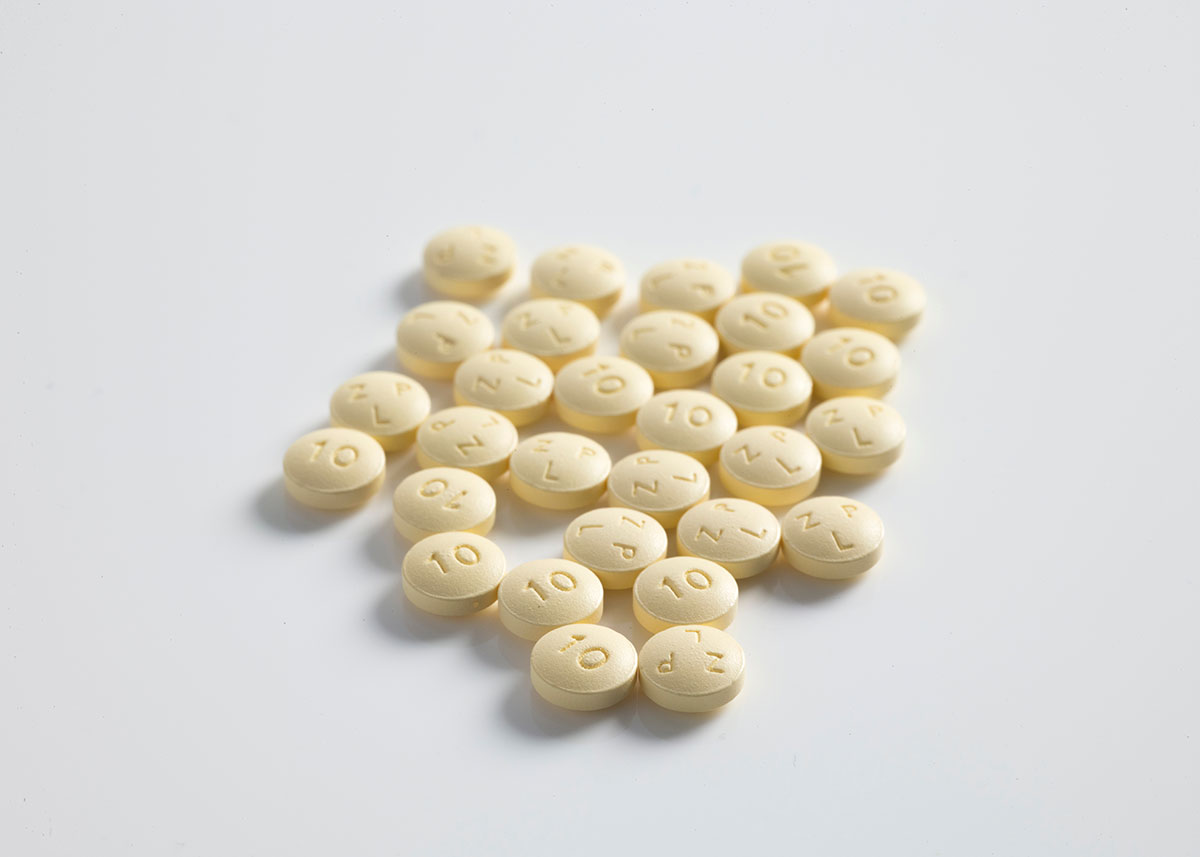Statins and Dementia: Better keep your brain cells alive!
Several million patients in Germany are treated with statins. In 2004, the consumption of lipid-lowering drugs throughout Germany amounted to around 856 million defined daily doses (DDD). In 2011 the amount increased to: 1.718 million DDD.
With the target to lower cholesterol levels, this doubtful strategy is still being mistakenly promoted to reduce heart disease risk. As a side effect, doctors and patients are accepting a possible cognitive decline.
These are the results of a study published in 2018 in the journal Frontiers in Neurology, which looked into the relationship between cholesterol and cognitive function [1]. While cholesterol is still largely vilified, and statin use still heavily promoted, the study found that having lower levels of low-density lipoprotein (LDL) cholesterol is linked to a higher risk of dementia.
High LDL Cholesterol: a Protective Factor Against Cognitive Decline
The study involved data from nearly 4,000 residents aged 50 years or over in an urban community in China. A high level of LDL cholesterol was found to be inversely associated with dementia in the study participants, even after controlling for other factors that might increase risk, including demographic characteristics, health behavior, mood assessment and medical history.
What’s more, the researchers noted, “There was a significantly higher proportion of participants with low levels of total cholesterol (TC) and [LDL] cholesterol in the dementia group than in groups without dementia.” The association was so strong that they concluded a high level of LDL cholesterol may be considered as a “potential protective factor against cognitive decline.”
This may come as a surprise for those who have been told that cholesterol is more of a burden than an asset, but other studies have also found cholesterol to be protective to the brain. For instance, cholesterol levels in the high-normal range were associated with better cognitive performance in people aged 65 years and older.
Those researchers concluded, “Low cholesterol may serve as a clinical indicator of risk for cognitive impairment in the elderly.”
An earlier U.S. study of more than 4,300 Medicare recipients aged 65 and over also revealed that higher levels of total cholesterol were associated with a decreased risk of Alzheimer’s disease, even after adjusting for cardiovascular risk factors and other related variables [2].
Other studies have found higher HDL cholesterol to be associated with better cognitive function, with researchers suggesting, “Further exploration of the protective effect of HDL-C [HDL cholesterol] on cognitive function in aging is warranted through follow-up, longitudinal studies.”
Why Higher Cholesterol Levels May Be Good for Your Brain
The brain contains up to 30 percent cholesterol, which is an essential component of neurons and of great importance to develop and maintain neuronal plasticity and function. Cholesterol is critical for synapse formation, i.e., the connections between the neurons, which allow you to think, learn new things and form memories.
Beyond this, it’s been suggested that high cholesterol could be an indicator of overall good nutritional status and health, whereas low cholesterol has been linked to a higher risk of mortality and is often seen alongside malnutrition and chronic diseases, including cancer.
The Frontiers in Neurology study authors [1] also suggest that, as a major component of the brain, decreasing cholesterol levels could be associated with cerebral atrophy, “a typical anatomic sign of dementia,” and other factors more directly related to your brain health. They continued:
“Another speculation is that high LDL-C could reduce neurons’ impairments or facilitate compensatory repair of injured neurons. The inhibitions of dendrite outgrowth and synaptogenesis, and the acceleration of neurodegeneration have been observed when neurons was a short of cellular cholesterol or cholesterol supply.
Besides, cholesterol plays an important role in the synthesis, transportation and metabolism of steroid hormones as well as lipid-soluble vitamins, both of which have an impact on synaptic integrity and neurotransmission.”
Therefore it is wise to be careful before taking statins!
Aside from an increased risk of dementia, statins deplete your body of Coenzyme Q10 (CoQ10), which accounts for many of their devastating results.
CoQ10 is used for energy production by every cell in your body. Its reduced form, ubiquinol, is a critical component of cellular respiration and production of adenosine triphosphate (ATP). ATP is a coenzyme used as an energy carrier in every cell of your body. The depletion of CoQ10 caused by statins can actually increase your risk of acute heart failure.
While this can be somewhat offset by taking a Coenzyme Q10 supplement, statins still come with a risk of other serious side effects, including:
- Diabetes, Cancer, Cataracts, Musculoskeletal disorders, including myalgia, muscle weakness, muscle cramps, rhabdomyolysis and autoimmune muscle disease and depression.
Statins also inhibit the synthesis of vitamin K2, which can make your heart health worse instead of better, and reduce ketone production. Ketones are crucial nutrients to feed your mitochondria especially in the brain and are important regulators of metabolic health and longevity.
Conclusions:
- Having lower levels of low-density lipoprotein (LDL) cholesterol is linked to a higher risk of dementia, according to a study of nearly 4,000 people aged 50 and over
- A high level of LDL cholesterol was found to be inversely associated with dementia in the study participants, even after controlling for other factors that might increase risk, including demographic characteristics, lifestyle, mood factors and medical history
- The association is so strong, that a high level of LDL cholesterol may be considered as a “potential protective factor against cognitive decline”
- The human brain contains up to 30 percent cholesterol, which is an essential component of neurons and necessary to develop and maintain neuronal plasticity and function
In the end, a nutrition scheme rich on healthy fats and low refined sugars is a promising strategy against dementia. The use of statins to lower cholesterol may end in a fast cognitive decline.
Mehr Statistiken finden Sie bei Statista
References:
[1] Zhou, F. et al. (2018) ‘High low-density lipoprotein cholesterol inversely relates to dementia in community-dwelling older adults: The Shanghai aging study’, Frontiers in Neurology, 9(NOV), pp. 1–8. doi: 10.3389/fneur.2018.00952. [2] Reitz, C., Tang, M. X., Luchsinger, J., & Mayeux, R. (2004). Relation of plasma lipids to Alzheimer disease and vascular dementia. Archives of neurology, 61(5), 705–714. doi:10.1001/archneur.61.5.705





